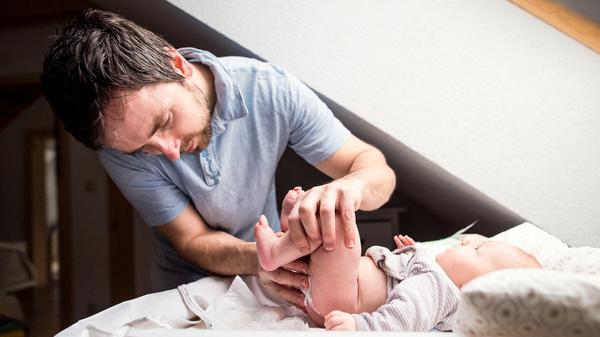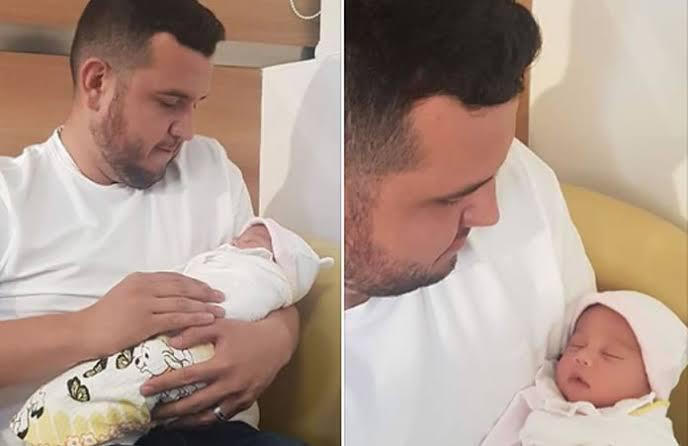I am going to have a child in 2020: what do I need to know about paternity and maternity leave?
Doubts about parental leave in 2020:
Are you going to be parents in 2020? Although, broadly speaking, the law that regulates maternity and paternity leave changed in March 2019, with the arrival of the new year, some things change, which mainly affect those parents other than the biological mother.
As a general rule, as of January 1, non-biological mothers or fathers will be able to enjoy 12 weeks of leave, four more than the eight that began to be applied in April of last year. An unusual situation in Spain, which has generated job uncertainty in those who plan to spend three months in a row out of the office.
These are some of the most frequent doubts and questions that future parents assail:
How long does the permit last?
The economic benefit for childbirth and child care for the biological mother will continue to be 16 weeks, six of which will have to be enjoyed immediately after childbirth, in accordance with the provisions of Royal Decree 6/2019 of March 1.
However, as of January 1, 2020, the leave for the parent other than the biological mother will be 12 weeks. In this way, four weeks are added to the extension of eight that came into force last April. The first four weeks will have to be attached to the birth to fulfill the obligation of caring for both the baby and the mother.
Upon reincorporation, both parents will have the right to benefit from any improvement in working conditions that has been achieved during their absence and, as a general rule and in both cases, the total leave will have to be taken before the baby turns 12 months of life.
Does it last longer if the birth is multiple?
Yes, in the event of multiple births, the permit is extended by two weeks per child from the second.
The hours of lactation also increase proportionally.
I am the father, but I am not the mother. Do I have to enjoy it at the same time as her?
Yes, but only partially. Of the 12 weeks available to the second parent, the first four will have to be compulsorily enjoyed after childbirth in anticipation of also being able to give the mother the necessary attention and care. For the remaining eight weeks, the non-biological mother or father can decide how to distribute them and the aforementioned limit of one year of life of the baby applies.
What if the baby is premature?
In the event that the newborn is premature or that, for any other reason, has to remain hospitalized after birth, the period of leave may start from the date of hospital discharge, with the exception of the first mandatory six weeks after the birth in the case of the biological mother. However, if the admission exceeds seven days, the subsequent leave will be extended by as many days as the newborn is in the hospital up to a maximum of 13 additional weeks.
In addition, employees may be absent from work for one hour a day and will have the right to opt for another two hours of reduced working hours with the consequent reduction in salary.
Can I split the permit?

Yes, you can split a part. The law provides that, except for the six weeks after childbirth that from 2021 both parents must enjoy at the same time (four during 2020 in the case of not being the biological mother), the rest of the leave -up to 16 weeks in the case of the biological mother and up to 12 in the case of the second parent - can be divided at will, in weekly periods and on a full-time or part-time basis, as agreed with the company, until the baby's first year of life.
On the other hand, the biological mother may anticipate her permission up to four weeks before the expected date of delivery.
Can I transfer part of the permit to the other parent?
For now, yes. Although the leave is an individual right of each worker, until both parents are fully equalized in 2021, the biological mother can give up two of her 16 weeks to the detriment of the second parent, so that the leaves are equal to 14 weeks for each one.
In any case, the non-biological parent cannot assign any part of her permission even if she is not going to use it. In the same way, the hours of breastfeeding are not transferable between the parents, despite the fact that one of them renounces its enjoyment.
Can the company decide how to order my leave or force me to resign?
Not at the beginning. In accordance with the Royal Decree, parents are free to decide how to order their permits - with the exception of the mandatory six weeks after childbirth, four in the case of the second parent - in a manner agreed upon with the company and within the agreements of the collective bargaining that have been reached.
However, the remaining weeks of the mandatory period -ten in the case of the mother and eight in the case of the other parent- are a right and not an obligation, so they can be waived.
In addition, in all cases it is stated that, if both parents work in the same company, it may limit the simultaneous enjoyment for well-founded and objective reasons.
What if my agreement offers me more days than the law?
In the case of the parent other than the mother, some agreements include a three-day permit (six in case of displacement) for the birth of children that can be added to the 12 weeks -16 from 2021- that correspond to them, according to a judgment issued by the National High Court last November, which also recognizes this right retroactively "to all workers whose birth or adoption of a child has occurred after the entry into force of RDL 6/2019, of March 1" .
The court applies the "situation of concurrence" described in article 3.1.b) of the Workers' Statute and which establishes, among others, "the most favorable rule principle" for the worker, since the new law is of a type of "legal norms that establish minimum conditions" that "leave open the possibility of being elevated or improved by other norms, basically by collective agreements".
Am I entitled to breastfeeding hours?
Yes. Both parents have the non-transferable right to enjoy up to one hour of absence from work for breastfeeding, which they can divide into two fractions, until the baby is nine months old. They may also replace it with a 30-minute reduction in working hours or accumulate it in full working days for the same purpose and under the terms established in collective bargaining.
Parents must notify the company at least 15 days in advance, or what is stipulated in the agreement, and, in the event that both parents work in the same company and request breastfeeding for the same child, the company You can limit that both enjoy it at the same time as long as you justify the reason.
Can I opt for a reduction in working hours?
Yes. The reduction of working hours to care for a minor is a right for the worker, regardless of her sex, who may request it for “reasonable and proportionate” reasons until her child turns 12 years old. In addition, when the agreed agreement ends or this date arrives, the worker may request to return to their previous shift or contract.
I am self-employed, what do I do?
As for the rest of the workers, the benefit for the birth and care of a minor in the case of the self-employed is equivalent to 100% of the regulatory base. For the self-employed, this amount generally corresponds to the minimum contribution base. In addition, it is essential that the self-employed be up to date with the payment of contributions.
What if it's an adoption?
As of January 1, 2020, in the event of adoption, adopters will have 16 weeks of leave, six of which they must enjoy after the judicial or administrative resolution that approves the adoption, full-time and uninterruptedly.
The rest of the voluntary period may be distributed between the two in weekly blocks, uninterruptedly and on a full-time or part-time basis, up to a maximum of 16 weeks and without exceeding the limit of ten accumulated by one of them, within the 12 months following the resolution.
In the event that it is necessary for the adopters to move to the adoptee's country of origin, the law provides that the permit may start up to four weeks before the court decision.
Does anything change if I am an official?
Similar rules apply to civil servants as for other workers, with some exceptions.
In the case of public workers, nursing hours can be enjoyed as a reduction of one hour at the beginning or at the end of the day or divided into two half-hour periods at the beginning and at the end of work. It can also be enjoyed cumulatively in full days.
In all cases, breastfeeding must be requested at the end of the birth permit, with the particularity that, if the second parent decides to split his permit beyond the 16th week of the baby's life, his breastfeeding period may only begin after that of the biological mother if she has requested the hours cumulatively.
In addition to the general rules, in cases of adoption, the law provides that officials who have to go abroad can enjoy a permit of up to two months, receiving only basic remuneration during this period.
The time that elapses during the enjoyment of the permits of the civil servant parents or adopters will compute as an effective service for all purposes, guaranteeing full economic rights and, once completed, they will have the right to return to their job in conditions that do not are unfavorable to them.
How much will I charge?
In all cases, parents who enjoy leave for the birth and care of a minor will receive 100% of the base salary.
It should be remembered that, except during breastfeeding hours, it is Social Security and not the company that makes the payment of the benefit and this amount does not include per diems, restaurant vouchers or transport bonuses.
Can I be fired while on leave?
A worker can be fired while he is enjoying his paternity or maternity leave, but the company must prove the dismissal is appropriate for reasons unrelated to that cause. In fact, article 55.4 of the Workers' Statute declares disciplinary dismissal null and void during periods of suspension of the contract due to birth, unless the dismissal is declared appropriate for reasons unrelated to the exercise of the permit.







